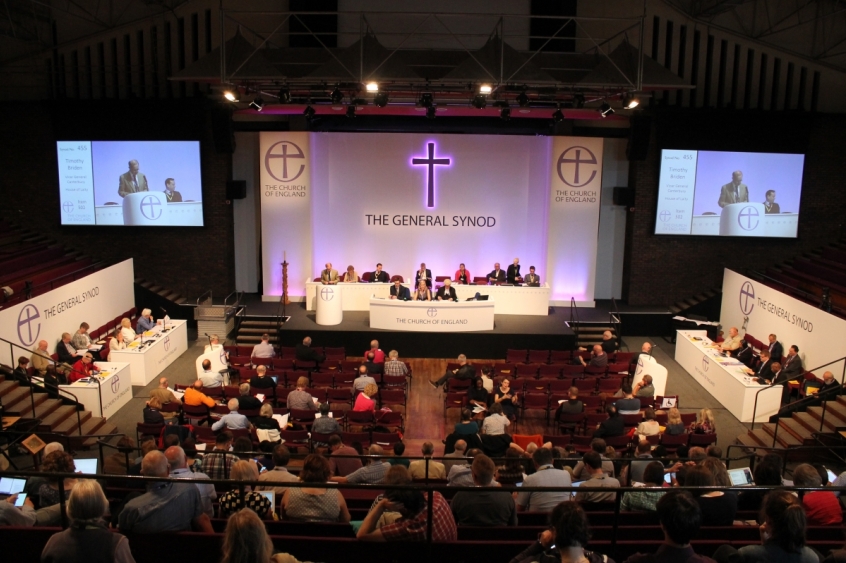Jayne Ozanne's call for Group Led Spiritual Abuse to be banned is commendable and yet laden with issues.
A private members motion to be presented to the Church of England General Synod argues that 'the practice of conversion therapy has no place in the modern world, is unethical, harmful and not supported by evidence'. It is accompanied by a paper published by the Royal College of Psychiatrists (RCP), but written by Jayne Ozanne who has no qualifications in the area of mental health. This paper seeks to outline reasons for the RCP to push the Government to introduce restrictions on what churches and other institutions can offer LGBTI Christians in the area of pastoral support. But is such a call based on any substantive evidence?

In my work as a statistician for the past 20 years I'm used to creating and testing hypotheses around data and information. Simply put, when we want to argue that 'X causes Y', we need to be able to demonstrate that it does in an analytically rigorous and repeatable manner. If I wrote a blog saying 'reading Christian Today damages my mental health and it should be shut down by the Government', you would naturally expect to not just take my word for it but instead present clear evidence that it is causing harm. In a similar way, a claim that religious and non-religious pastoral practices cause particular harm needs to be supported by a clear path of evidence.
So how would we go about producing such evidence? Well the best way to do that is to track people through particular experiences (for example a group therapy session) and compare their mental health before and afterwards. Unfortunately there is to date only one study that has actually done this, the Jones and Yarhouse 'Ex-gay Study' (2011) and after following a number of individuals over a few years through a variety of religious orientated therapeutic approaches, there was no statistically significant evidence of harm, even in those for whom the therapy 'failed' or who dropped out.
What is particularly interesting about this finding is that Jones and Yarhouse were at great pains to use proper objective psychological measures of mental health and harm at all points through their longitudinal study. This is in stark comparison to many studies cited in favour of harm (for example, Schroeder & Shidlo, 2001) which use self-selecting samples and include no proper psychological assessment of individuals before and after their therapy to assess real quantifiable changes in mental health. This means that often, like the Oasis Report that the Ozanne paper cites, such claims rest on unqualified anecdote that are being referenced to support such a ban.
There are also other statistical issues involved in determining whether harm is caused by certain actions. We all remember the scare over a link between autism and the MMR vaccination jab. We know that the first real indicators of autism can occur in the second year of life when many ASD children seem to 'regress' from previous attainments. The fact that this is often around the same time that they receive their MMR jab means that there is a high correlation between the two events but not necessarily any causal link.
In a similar way, just because someone who engages in some form of therapy develops mental health issues does not mean that the therapy caused them. Indeed, there is very good evidence to suggest that a large proportion of people who enter into therapy for a number of issues enter periods of depression or have other mental health symptoms precisely because the therapeutic process of exploring one's deeper emotional and spiritual life brings to the fore key issues and formative events in a person's life. When I refer people to counselling for any number of issues I almost expect some short-term deterioration in that individual's sense of wellbeing, as do many licensed therapists and counsellors.
Perhaps it's particular therapies that are the problem? Some UK based counsellors have been disciplined over involvement in ex-gay therapies (for example, Lesley Pilkington) but interestingly in these cases the relevant authorities have cited generic abuses of practice (for example, leading a client in interpreting their personal narrative/poor separation of professional and personal space etc) rather than the therapy itself. And that is not surprising, because despite all the publicity and scare stories in this area, the overwhelming proportion of therapists who support people with unwanted same-sex attraction use traditional talking therapies like CBT, Jungian approaches, Gestalt or person centred therapy. I don't believe the RCP wants to ban these outright, so it's hard to see how you would ban 'ex-gay therapy per se. There is no single therapeutic model in the same way that there is no single therapeutic model for dealing with grief, rape, depression or any other issue that someone goes to a counsellor with.
We need to be clear what the groups are trying to achieve. Some groups like Living Waters have historically offered some expectation of orientation change. Others like True Freedom Trust do not make such claims and instead concentrate on supporting those who wish to integrate a homosexual orientation with a conservative Christian world view. Both would use very similar group support systems and it's hard to see how one would distinguish between the two. The idea that the RCP would seek to prohibit a group that simply sought to help people live a celibate gay life is an extraordinary thought.
Maybe these religious based group approaches should be banned because they don't work? The Jones and Yarhouse study from 2011 was clear that there was no statistically significant change at the group level in their self-reported sexual orientation. Particular individuals reported change and others reported no change, and this fits anecdotal evidence elsewhere. But should a low success rate be a reason to ban a therapeutic group? Peer review studies indicate that the success rate for Alcoholics Anonymous (another spiritual based group therapy) is around five per cent to 10 per cent (lower than the anecdotal success rates for forms of ex-gay therapy) and there is plenty of evidence of those who believe they have been harmed by the experience. Given the lower success rates and same reports of harm than conservative support groups for those who are not happy with their sexual orientation, should such alcoholics support therapies also be banned? If not, why not?
These are all complicated issues and deserve serious engagement. If these kind of religious support groups are accused of causing harm then the highest standards should be used to assess that accusation. Anecdote is not enough and as any statistician knows, the plural of anecdote is not anecdata. Ideally proper longitudinal studies should be setup to assess and qualify reported outcomes and to move the debate away from relying on self-reported harm which is a nebulous concept. The RCP should also be clear as to what therapeutic approaches are being examined (CBT, Jungian etc) and explain how similar research exploring their use to handle other issues has been approached and utilised to make judgements around their efficacy and likelihood to cause harm.
This is really the kind of in depth study that Jayne Ozanne is calling for and we should all encourage it. It's time to take the debate over the pastoral practices of conservative churches away from the realm of soundbite, anecdote and emotion and towards the area of rigorous and consistent research, applying proper scientific standards and being prepared to answer the hard questions around why one particular religious practice should be singled out.
Rev Peter Ould is a Church of England priest based in Canterbury. He blogs at www.peter-ould.net.













